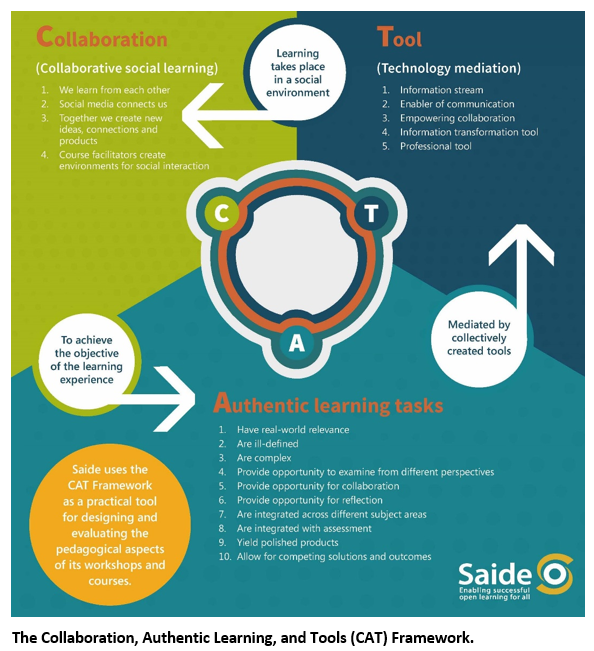

Maryla Bialobrzeska reflects on the programme design
Background: Addressing urgent needs in Higher Education
In South Africa’s evolving higher education landscape, historically disadvantaged institutions (HDIs) have long faced significant challenges. These struggles have been further intensified by recent events such as the #FeesMustFall movement and the global COVID-19 pandemic. Among the country’s 26 public universities, eight are classified as HDIs, which continue to contend with systemic issues threatening to widen the gap in educational quality and accessibility.
To address these challanges, the Universities Learning Futures(ULeFu) Digital Teaching and Learning Programme was launched, with Saide-a leader in digital teaching and learning-at the helm.
By focusing on transforming teaching and learning practices within HDIs, this initiative marks a pivotal step in strengthening institutional capability and capacity across the higher education sector. At its core, Saide has developed a digital transformation framework, guide, and learning toolkit to drive this change. This article explores the background, approach, and outcomes of the project, emphasising its importance in reshaping South Africa’s higher education system.
Saide’s Approach to digital transformation
Recognising the crucial role of digital transformation in empowering HDIs, Saide adopted a holistic and practical approach to this project. With its deep expertise in designing and developing technology-mediated learning programmes, Saide combined theoretical frameworks with hands-on experience to inform its strategy.
As defined by Educause, digital transformation involves a series of profound, coordinated cultural, workforce, and technological shifts that enable new educational and operational models. It goes beyond mere digitisation, requiring a fundamental change in how institutions operate and deliver value to their students. Saide’s proposal embraced this definition, focusing on a technology-mediated learning framework tailored to meet the unique needs of HDIs.
Professional development programme: Equipping educators for the digital age
A key pillar of this project was Saide’s professional development programme, designed to equip academic and administrative staff with the skills necessary to lead the digital transformation of teaching and learning at their institutions. Delivered through six interactive online workshops, the programme covered critical aspects of digital learning:
1. Introduction to digital transformation - Participants were introduced to the Digital Learning and Teaching Programme and the Educause Digital Transformation framework.
2. Learning design framework - This session focused on understanding learning and teaching designs for various modes of interaction (contact, blended, or fully online) and explored the principles of activity-based, collaborative, and textually relevant learning.
3. Authentic learning and assessment - Participants explored authentic learning and assessment strategies, applying the Collaboration, Authentic Learning, and Tools (CAT) framework.
4. Evaluation of authentic learning - This workshop examined transformative pedagogy and evaluated authentic learning approaches using the developing technology-mediated learning framework.
5. Evaluation of learning design - Participants gained insights into creating course curricula, integrating topics, activities, multimedia, and assessments into their learning designs.
6. Developing a technology-mediated programme - The final workshop guided participants in creating a course module using the technology-mediated curriculum framework, incorporating learning design principles, authentic summative assessments, and media use.

Conclusion: A path forward for HDIs
The completion of this project marks a significant milestone in the ongoing efforts to support and strengthen HDIs in South Africa. Through the development of a comprehensive digital transformation framework, the creation of essential learning resources, and the delivery of targeted professional development, this initiative has laid the groundwork for a more resilient and future-ready higher education system.
As these institutions continue to navigate the challenges of the modern educational landscape, the tools, frameworks, and knowledge provided through this project will be invaluable in guiding their journey toward digital transformation. By equipping educators and administrators with the skills and resources they need, we are not only addressing the some of the immediate challenges faced by HDIs but also paving the way for a more inclusive and equitable future for all students in South Africa.